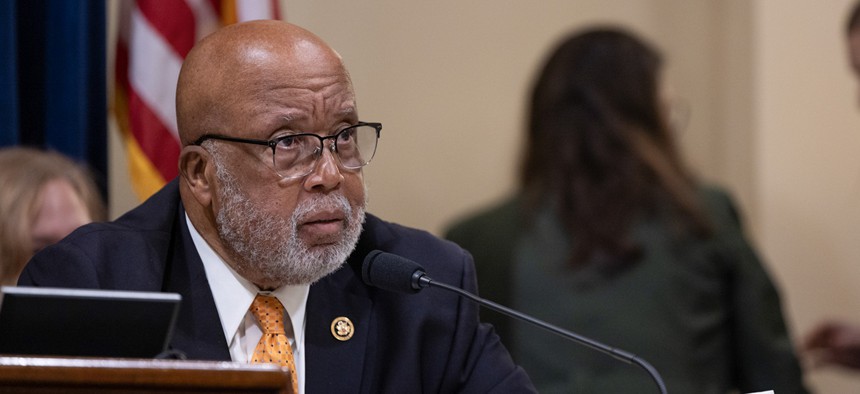Federal Employees Express Concern Over Potential Agency Politicization
By Staff Writer | March 31, 2025

Photo from nextgov.com
WASHINGTON — Federal employees are voicing alarm over reports that a second Trump administration could implement significant structural changes to government agencies, potentially undermining civil service protections that have been in place for generations.
The concerns stem from discussions on social media platforms where federal workers are sharing information about Project 2025, a policy blueprint developed by the Heritage Foundation that outlines plans for reshaping the federal government should former President Donald J. Trump return to office.
“This is terrifying,” wrote one federal employee on Reddit, a popular online forum where government workers often discuss workplace issues. The post, which garnered significant attention in a community dedicated to federal employment matters, highlighted fears about what many career civil servants view as an existential threat to the merit-based system that has governed federal employment since the Pendleton Civil Service Reform Act of 1883.
At the heart of these concerns is a policy proposal known as Schedule F, an executive order initially issued by President Trump in October 2020 that would reclassify thousands of federal positions, potentially stripping them of civil service protections and making them more vulnerable to political appointment processes.
“I’m about to hit my 10-year mark this month and I’m seriously considering leaving federal service,” another commenter wrote, reflecting a sentiment echoed by multiple participants in the discussion.

Civil service experts note that the federal government’s approximately two million career employees operate under systems designed to ensure hiring, promotion, and retention decisions are based on merit rather than political affiliation. These protections, they argue, help maintain institutional knowledge and operational continuity across administrations.
“The civil service system was explicitly created to prevent the ‘spoils system’ where government jobs were handed out as political rewards,” explained James Pfiffner, professor emeritus at George Mason University’s Schar School of Policy and Government. “What we’re seeing now is concern that those guardrails could be significantly weakened.”
Federal employee unions have been vocal about these concerns. The American Federation of Government Employees, which represents approximately 700,000 federal workers, has previously characterized Schedule F as “the most profound undermining of the civil service in our lifetimes.”
Several commenters in the online discussion expressed uncertainty about their professional futures. “I’m in a science role and worry about what this means for evidence-based policymaking,” wrote one participant, while another questioned whether their agency’s mission would remain intact under potential restructuring.
Career federal employees typically serve across multiple administrations regardless of party, providing technical expertise and institutional memory that helps government function effectively through political transitions. Many in the discussion emphasized this nonpartisan aspect of their work.
“I’ve served under both Republican and Democratic administrations,” one commenter noted. “This isn’t about politics for most of us—it’s about being able to do our jobs effectively for the American people without fear of retaliation for providing objective analysis.”
Policy experts caution that significant changes to civil service protections could have far-reaching consequences for government operations. Donald Kettl, professor emeritus at the University of Maryland School of Public Policy, has previously argued that weakening these protections could lead to “a government where loyalty trumps expertise.”
As the presidential election approaches, these discussions highlight the personal and professional stakes for those who have built careers in federal service, with many expressing that they are updating resumes and considering private sector opportunities as contingency plans.
“The uncertainty is what’s most difficult,” concluded one long-serving federal employee in the discussion. “We’re all just trying to understand what this might mean for our agencies, our work, and ultimately for the public we serve.”
Responses